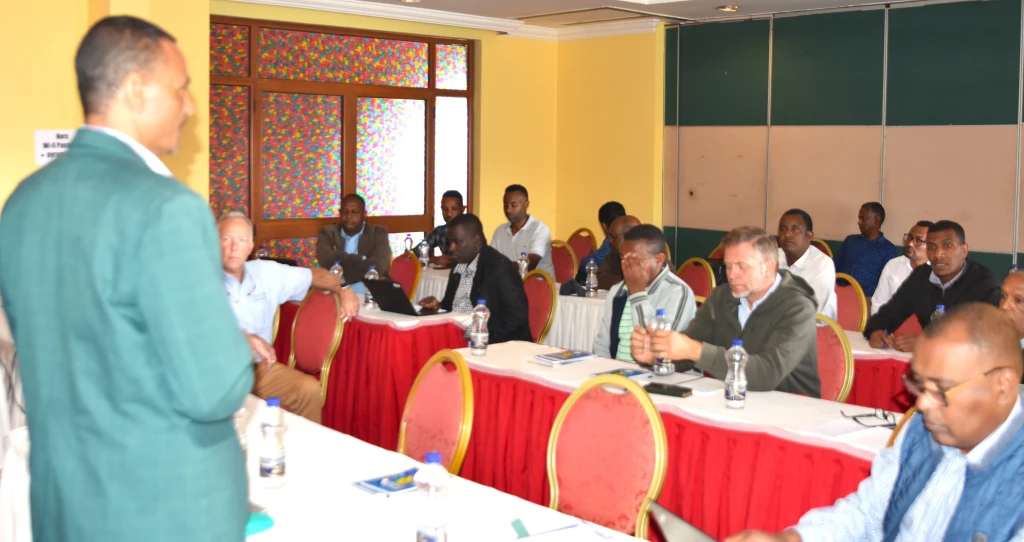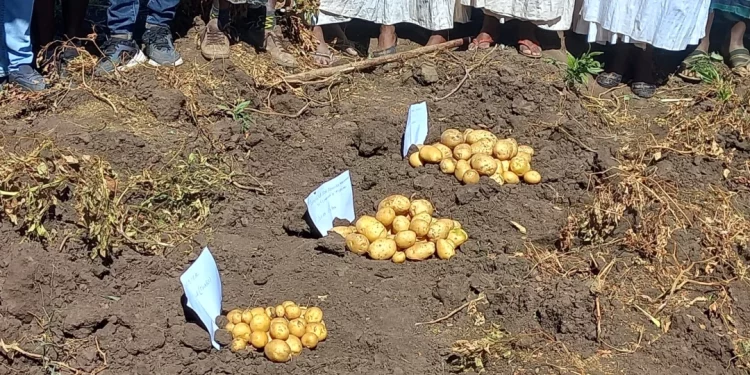#HTPS #Ethiopia #VarietyRegistration #PotatoProduction #SeedSector
A consultative workshop on the potential of using Hybrid True Potato Seed (HTPS) for variety registration in Ethiopia was held on January 31st, 2023, at Bishoftu. The workshop was organized and facilitated by the Ethiopian-Netherlands Seed Improvement Partnership (ENSP) and attended by various stakeholders, including breeders, the Ethiopia Agriculture Authority, Ministry of Agriculture, Solynta seed company, Sola agro plc, development partners representatives, and ENSP project staff. The objective of the workshop was to present the concept of HTPS, build a shared understanding of its significance among stakeholders, and investigate the feasibility of utilizing HTPS as seed source for variety registration in Ethiopia.
Introduction to HTPS and its potential
HTPS is a new technology that has the potential to revolutionize potato production in Ethiopia. The use of tubers for potato seed has affected rapid multiplication and marketing of potato seed due to segregation. HTPS is believed to solve this problem by producing clean and disease-free True Seed, which is a more efficient seed production technique. The use of HTPS also lowers logistic and seeding costs, as it requires only 25-100g of TPS compared to 3,000kg of tubers for 1 ha.
Presentations and discussions

Dr. Mohammed Hassena, ENSP project manager, highlighted the purpose of the consultation session and explained how ENSP is collaborating with local and international private seed companies to enhance Ethiopia’s seed sector. Charles Miller, the commercial director of Solynta, made a presentation on the general concept of developing hybrid varieties and its advantages. He also mentioned that Solynta has developed hybrid potato varieties and has experience of using HTPS as seed source. Solynta is enthusiastic about introducing and registering its hybrid varieties in Ethiopia through HTPS.
Mr. Fiseha Teshome from the Ethiopian Agricultural Authority made a presentation on the Ethiopian experience in variety registration and discussed the key pillars of the registration process. He explained that there are 37 potato varieties that have been registered so far, but there is no protocol on how to register potato varieties using HTPS. The draft seed proclamation provides three different alternatives for variety registration.
The participants raised both technical and variety registration related questions, which were thoroughly discussed. In the conclusion of the workshop, Charles Miller appreciated the positive and open-minded discussion among the participants. Mr. Fiseha expressed his appreciation for the workshop and said that the authority is ready to work with Solynta to bring and register better hybrid varieties which will transform the potato production at country level.
Conclusion
The consultative workshop on the potential of using HTPS for variety registration in Ethiopia was a step towards exploring new possibilities for potato seed production in the country. The workshop provided an opportunity for stakeholders to understand the benefits of HTPS and discuss its feasibility for variety registration. The introduction of HTPS could revolutionize potato production in Ethiopia and bring new opportunities for the seed sector.







